Remembering Anfal: Genocide Crime Against Kurds
Kurdistan 09:14 AM - 2024-04-14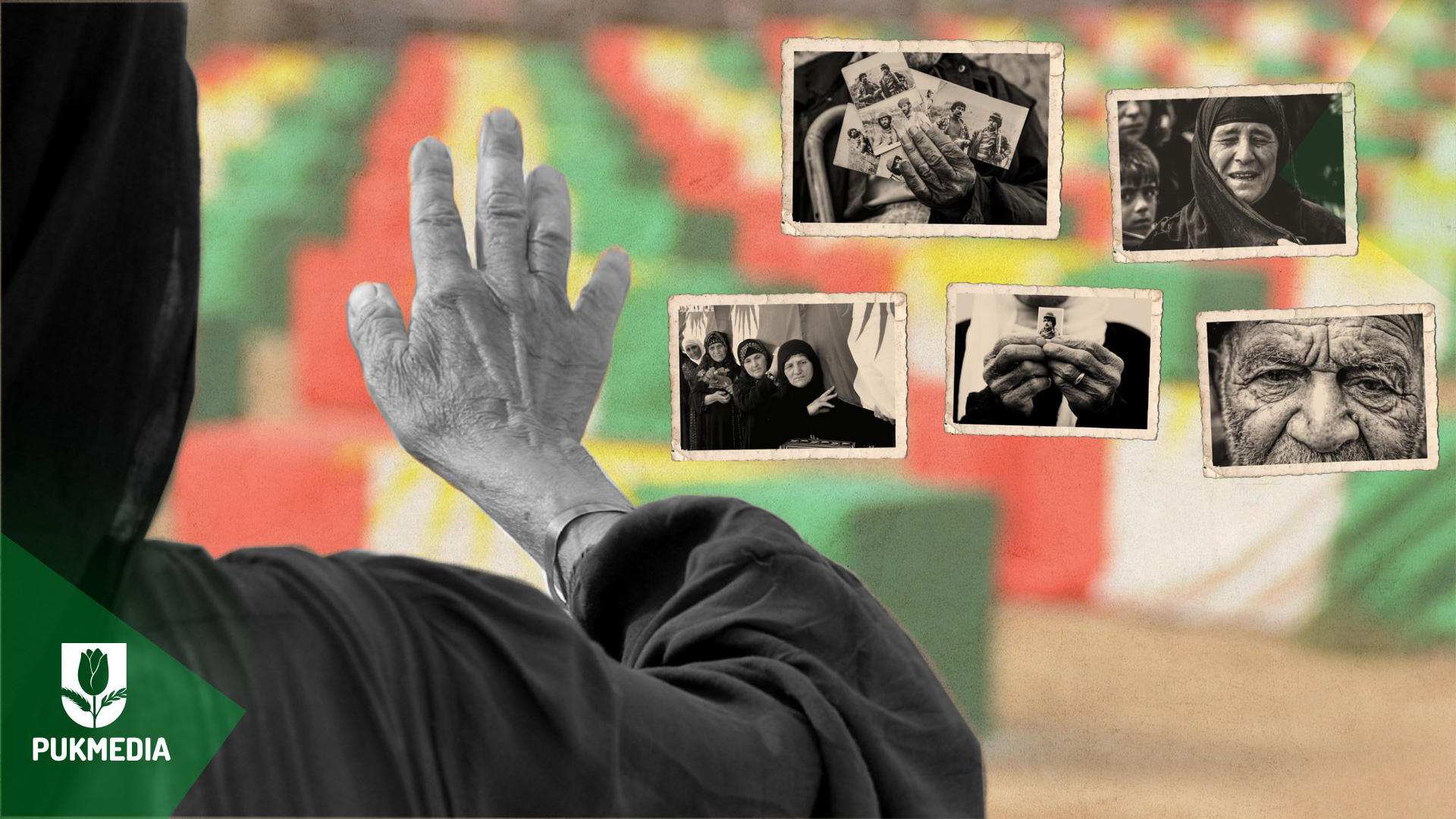 PUKMEDIA
PUKMEDIA
Photos of Anfal victims' families and victims' remains in caskets in the background.
The Anfal Campaign, also known as the Kurdish Genocide, Operation Anfal, or simply Anfal, was a genocide campaign against the Kurdish people in the Kurdistan Region, headed by Chemical Ali (who carried out the Halabja chemical attack) and ordered by the fallen Ba'ath Iraqi President Saddam Hussein.
The Qur'anic verse Surat al-Anfal, which the former Iraqi Baath regime employed as a code name for a series of systematic assaults against the Kurdish population of northern Iraq between 1986 and 1989, serves as the inspiration for the campaign's name. Besides the Kurds, Assyrians, Shabaks, Iraqi Turkmen, Yazidis, Jews, and Mandeans were among the minorities targeted by the campaign, and numerous villages that belonged to these ethnic groups were destroyed.
Officially recognizing the Anfal campaign as genocide are Sweden, Norway, and the United Kingdom. A motion from the Green party calling for the official recognition of Anfal as a genocide was approved by the Swedish parliament's Riksdag on December 5, 2012. The 349 members of parliament voted in favor of the resolution. Following a campaign started by Conservative MP Nadhim Zahawi, the British House of Commons officially acknowledged the Anfal as a genocide on February 28, 2013.
One of the most deadly chapters in the history of government-sponsored mass murdering in Iraq is the Anfal campaign, which the totalitarian regime of Saddam Hussein carried out against the civilian Kurdish population from February 22, 1988, until September 6, that same year. The air force, special forces, Republican Guard, commando forces, security and intelligence services, military intelligence, chemical and biological weapons departments, as well as all service departments that have been put in the service of carrying out these operations, as well as the army and regular forces directly, including (the First Corps, which was based in Kirkuk, the Fifth Corps, which was based in Erbil).
The stages of the Anfal campaigns
* The first Anfal: Sulaymaniyah, besieging Sargallu from February 22 until March 19, 1988.
* The second Anfal: Sulaymaniyah's Qardagh, Bazian and Darbandikhan regions from March 22nd until April 1, 1988.
* The third Anfal: Garmian region including Kalar, Bawnur, Kufri, Douz, Sengaw, Qadir Karam, on April 20 of the same year.
* The fourth Anfal: The boundaries of Small Zab plain, meaning the area of Koya, Taq Taq, Aghjeler, and Nawshwan, on May 3 to May 8, 1988.
* The fifth, sixth and seventh Anfal: the vicinity of Shaqlawa and Rawanduz on May 15 until August 26.
*The eighth Anfal: The last phase took place in Badinan, Amedi, Akre, Zakho, Sheikhan, Dohuk, from August 25 until September 6 of the same year.
According to all accepted definitions, Anfal was a mass murdering operation, a genocide, and a planned extermination. As the Anfal operations' objective was to remove all of the Kurdish community's defensive capabilities, this indicates that the Anfal was the first step in the eradication of the Kurdish community and the destruction of settlements in Kurdistan.
The eight stages of the Anfal atrocities, which resulted in the deaths of more than 182,000 innocent Kurdish people, started with military operations. On February 22, 1988, the Sulaymaniyah region saw the start of the first phase of the campaigns, and on September 6, 1988, the Badinan region saw the end of the Anfal battles. During the Anfal campaign, a wide variety of illegal weapons—especially chemical ones like mustard, cyanide, nerve gas, and phosphorous—were utilized and many were buried alive in mass graves that are still being found across Iraq.
The Anfal campaign violates international norms and standards for crimes in every way, and this fact was made abundantly obvious in the report of international organizations responsible for monitoring human rights. The Anfal file was submitted to the Iraqi Supreme Criminal Court, and on August 21, 2006, a pleading was made in Baghdad court on the Anfal case. The court then made a final determination regarding the Anfal file, and as a result, the Anfal crimes were classified as genocide.
There were hundreds of defendants listed in the Anfal file who were the primary perpetrators of these crimes, but only these suspects were interrogated and tried (Saddam Hussein, Former President of the Republic of Iraq, Ali Hassan al-Majid, Secretary of the North Office of the Baath Party, Sultan Hashem, the Army Commander, Saber Abdul Aziz al-Douri, Head of the Military Intelligence Organization, Hussein. Rashid al-Tikriti, deputy in charge of implementing the Anfal campaigns, Taher Tawfiq al-Ani, governor of Nineveh, Farhan Mutlaq al-Jubouri, military intelligence official in northern Iraq).
Sentences issued against the defendants in the Anfal case
On Sunday, June 24, 2007, the Iraqi High Criminal Court for the Crimes of Anfal sentenced five defendants to death and life imprisonment in the Anfal case.
1- Execution by hanging of the accused Ali Hassan Al-Majid, nicknamed Chemical Ali, after he was convicted of genocide and crimes against humanity in the Anfal crimes.
Judge Muhammad al-Araibi al-Khalifah, who presided over the session, said: The court convicted the accused Ali Hassan al-Majid of applying the policy of the fallen Baath Party and the goals of ousted Saddam Hussein in northern Iraq and ordering the army and security forces to use chemical weapons in a large-scale attack that resulted in the death of thousands of citizens from the Kurds.
2- Death sentence by hanging for the accused, Sultan Hashem Ahmed Al-Tai, Minister of Defense.
3- Death sentence by hanging for the accused, Hussein Rashid Al-Tikriti, Deputy Chief of Staff.
4- Life imprisonment sentence for the accused, Saber Abdulaziz Al-Douri, Director of Military Intelligence.
5- Life imprisonment sentence for the accused Farhan Mutlaq Al-Jubouri on charges of participating in preparing for the crime of genocide.
6- The judge dropped the charges against Taher Tawfiq Al-Ani, former governor of Nineveh due to lack of evidence.
PUKMEDIA
More news
-
UAE Classifies Khor Mor Attack as Terrorism, International Violation
07:49 PM - 2024-04-27 -
Officials Call for Urgent Investigation Into Khor Mor Gas Field Attack
10:31 PM - 2024-04-26 -
Another International Report Mentions Kurdistan's Limited Freedom
09:24 PM - 2024-04-25 -
U.S. State Department Mentions Deterioration of Journalists' Rights in Iraq & Kurdistan
06:48 PM - 2024-04-25
see more
Leadership Source: PUK is Not in Favor of Delaying Elections
09:50 PM - 2024-04-28
Iraqi President Stresses Constitutional Resolution of Outstanding Issues
11:36 AM - 2024-04-28
Yemen Reveals Khor Mor Victims' Names
07:28 PM - 2024-04-27
Khor Mor Drone Attack Sparks International Reaction
11:04 AM - 2024-04-27
Most read
-
Dana Gas Temporarily Halts Operations at Khor Mor
Reports 11:46 AM - 2024-04-29

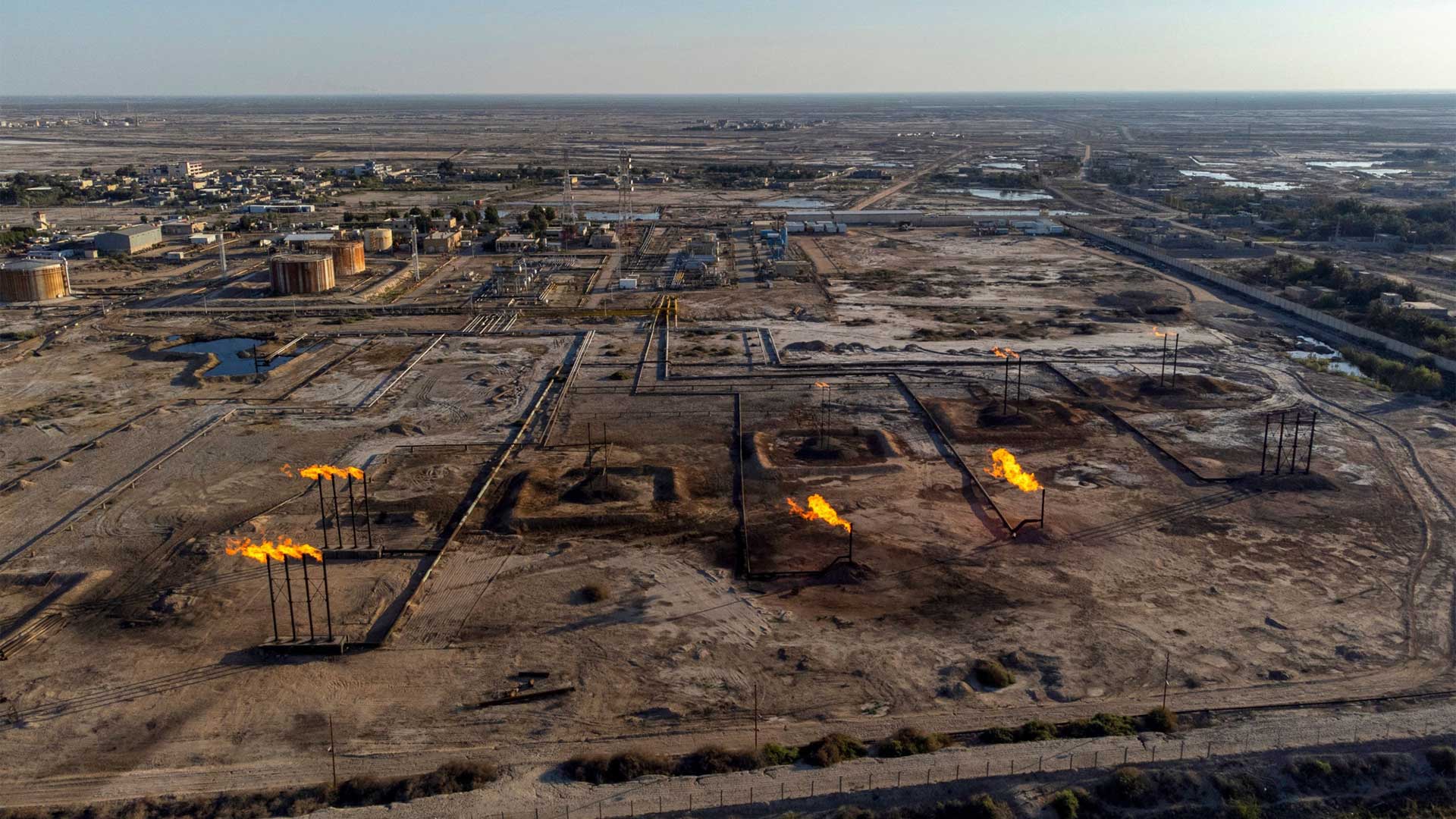
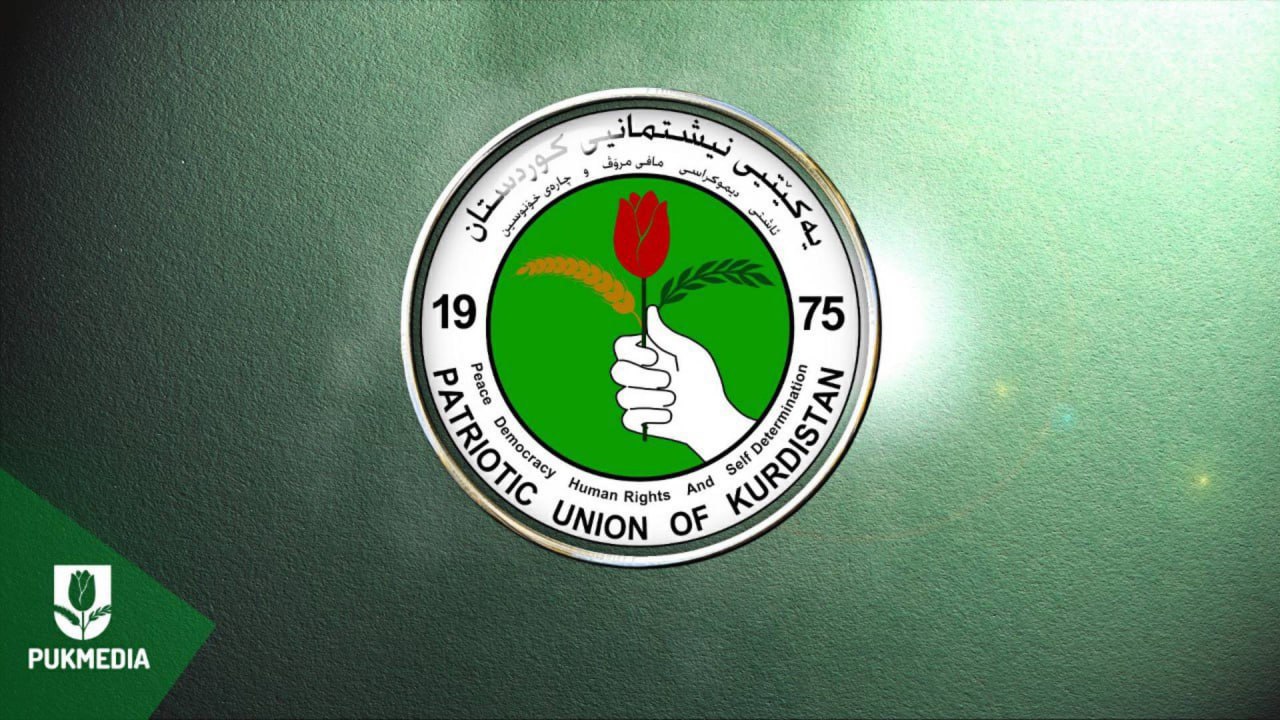
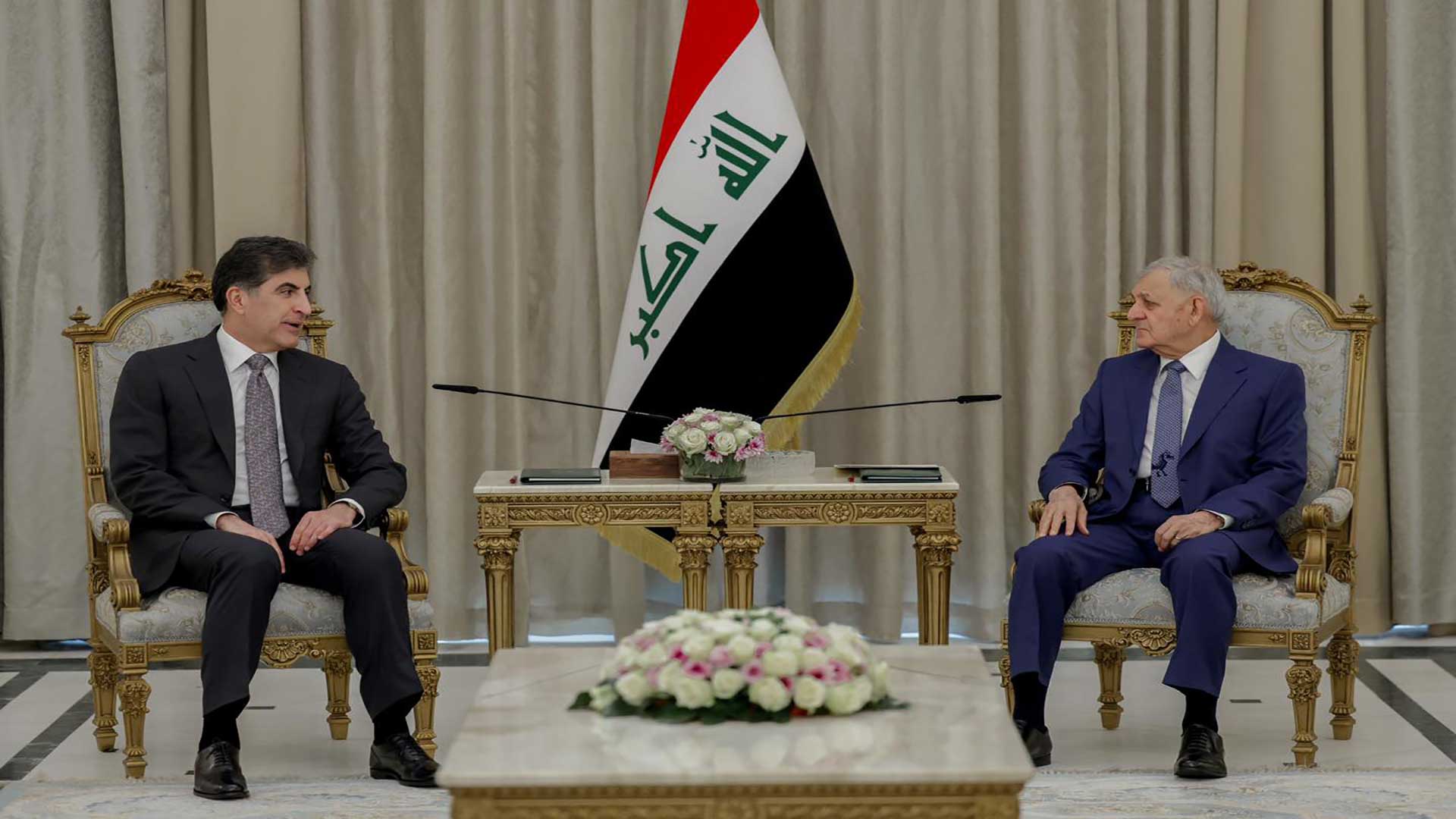

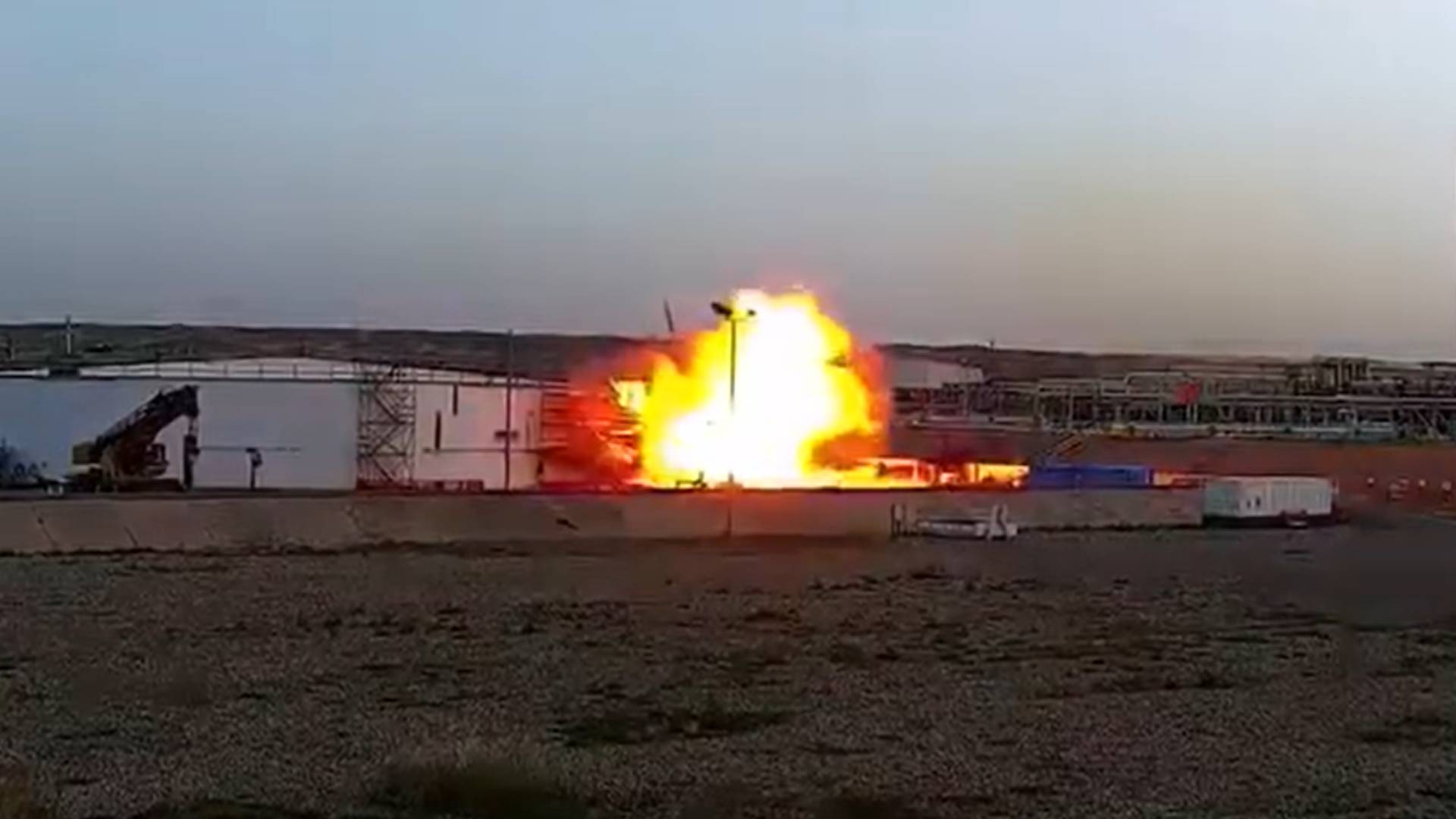
 Application
Application


